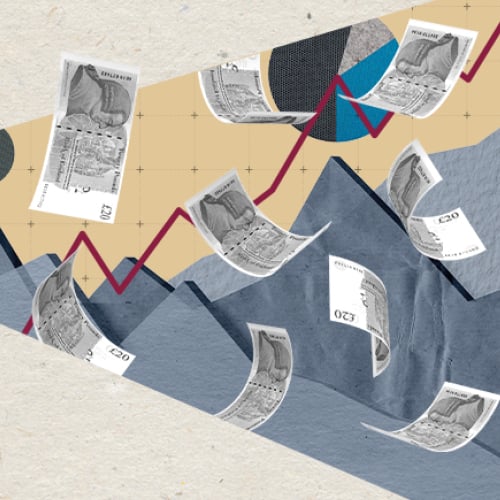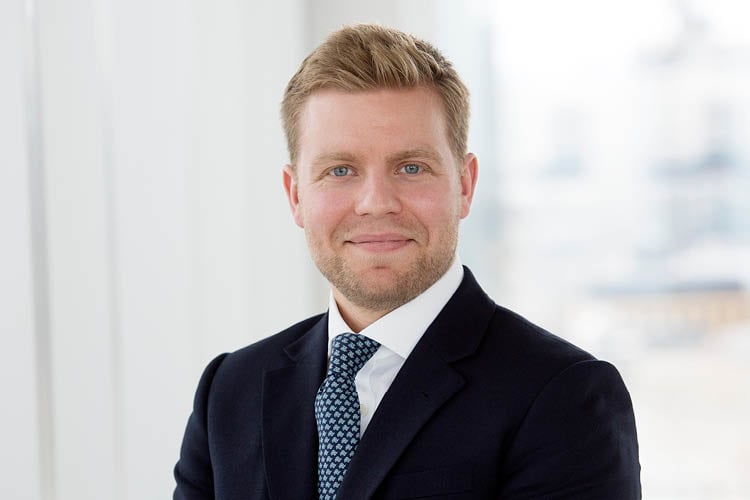What sustainable investing really looks like

What you need to know
- The public discourse surrounding environmental, social and governance (ESG) investing has ranged from excessive hype to a more recent backlash
- Yet our views on sustainability have not changed. We view sustainability as a fundamental investment issue
- Our approach is to invest for generations. We are long-term investors and seek companies that will help preserve and grow the wealth of our clients in a sustainable manner
- We assess how companies can adapt to new sustainability risks and how companies play a role in shaping the world around us
‘ESG investing’ has become a highly contentious topic in recent years.
When environmental, social and governance (ESG) issues first rose to prominence, after being considered a niche activity for many years, investors poured huge sums into supposedly green investments. This was an approach that proved to be far from sustainable, with investors often given vague commitments about how these factors were being integrated.
Today the pendulum has swung in the opposite direction and ESG investing has become a more divisive issue in some jurisdictions. In Texas, for example, officials have banned state agencies from investing in funds they believe have too much of a focus on ESG issues.
Meanwhile Larry Fink, chairman and CEO of BlackRock, one of the firms included in the Texas ban, has since said he no longer uses the term ‘ESG’, arguing it has been ‘weaponised’.
At Rothschild & Co, we never believed that ESG is an investment strategy. Taking into consideration risks, opportunities and impacts related to environmental, social and governance performance of an investee company is a sensible part of the investment process for any long-term investor.
We believe while society’s impact on the planet and its resources becomes ever clearer, true sustainability can often be misunderstood and misrepresented. Companies may present themselves as sustainable when their business models are anything but.
Firms must be able to adapt to fresh challenges and, as active investors, we can use our seat at the table to ensure we are part of shaping the future.
Understanding Sustainability
We have always believed that sustainability is a fundamental investment issue. If management teams don’t control their environmental footprint properly, treat social issues with disdain or have a poor governance structure, there’s a high likelihood these attitudes will cause problems down the line, negatively impacting the value of the company.
We’ve seen numerous examples of these failures costing investors, such as BP’s Deepwater Horizon disaster , Volkswagen’s ‘Diesel-gate’ emissions scandal and the Wirecard fraud.
Sustainability considerations are firmly embedded in our investment process. As truly long-term investors we take sustainability issues seriously. There is little point in preserving and growing wealth for future generations if we invest capital in a way that is detrimental to the world we live in.
A major way we do this is by building portfolios that invest in high-quality companies.
What makes a company 'high quality'? Two crucial ingredients are a resilient business model and sustainable business practices. These give us more confidence that an investment will perform well over the long term.
Every company has unique sustainability risks and opportunities, which is why we examine each investment independently to check it meets our high standards.
How we assess companies
The depth and breadth of our investment research has always been one of Rothschild & Co’s distinguishing features as a wealth manager, and I run a dedicated Sustainability and Stewardship Team to support our investment process.
This team provides subject matter expertise and data insights, which help us understand which sustainability factors are relevant to the companies and third-party funds that we’re considering investing in.
We know an airline is more likely to have a significant impact on the environment, for example, than a software company. But it’s equally important for tech firms and banks to have good governance structures, to ensure their privacy policies and cybersecurity measures are up to standard.
We analyse what’s important via a three-step process:
1. Thematic assessment – an investment is given a 'low', 'medium' or 'high' rating across multiple ESG themes, based on how influential they are to its prospects
2. Data and insights – in-house research and data from our external ESG research provider are used to measure how each investment is performing within these identified themes
3. Qualitative assessment – the sustainability factors and performance data are considered alongside our broader research to identify whether a company is operating at an appropriate standard.
This combination of quantitative and qualitative assessment gives us a more robust understanding of the sustainability performance of a company we invest in.

The depth and breadth of our research has always been one of Rothschild & Co's distinguishing features as a wealth manager."
Grey areas and red lines
We live in a complex world, yet too often sustainability is viewed in black and white terms.
Through this simplistic lens, a company is seen as either 'good' or 'bad' because of its perceived impact on the environment and society.
Such a definition will tell you that investing in electric cars or solar panels is responsible, but fossil fuels and airlines are inherently harmful.
But the reality, as is so often the case, is more nuanced and complex.
Mining companies are often screened out by ESG funds. However, many are actively contributing towards the energy transition by supplying raw materials such as copper, cobalt and lithium, which are needed for new environmentally friendly technologies.
We recognise that certain investment opportunities have trade-offs, and some will inevitably fall into grey areas. Our policy isn’t to exclude these industries or businesses outright, but they often require a higher level of scrutiny before we’re willing to invest.
That said, there are commercial activities that can carry severe risks for investors due to their impact on society and the environment. Tobacco and gambling, for instance, as well as controversial weapons and any processes related to thermal coal production and use. A full list of these ‘red lines’ can be found in our Sustainability and Stewardship report.
Prospering in the long term
Put simply, our approach is to invest for generations. At the peak of the rush to ‘ESG investing’ we stuck to our process and remained focused on the long term.
And today, when ESG investing has become a divisive term, we remain firm in our belief that sustainability performance is a fundamental investment issue.
Ultimately, we still believe businesses that effectively manage their sustainability risks will be better at adapting to a changing world, providing more reliable returns over the long term.
But it's not just about risks, it's also about opportunities. As well as adapting to a changing world, companies that are well-positioned are able to take advantage of the opportunities presented by the sustainability transition of the global economy and shape the world around us.
Some of these companies are offering environmental and social solutions to some of the world's biggest sustainability challenges, and they are doing so in a competitively advantaged way. This makes them hugely attractive to investors.
Active ownership gives us a seat at the table, which means we can shape real change through collaboration and engagement with the companies we own. It’s through these activities that we have the best chance at moving the needle on sustainability and securing long-term growth for investors.
All investments carry some level of risk, including the potential loss of money invested.
Ready to begin your journey with us?
Citations
1 BlackRock too green for Texas; rest of Wall Street okay - for now, Reuters, 30 August 2022
2 BlackRock's Fink says he's stopped using 'weaponised' term ESG, Reuters, 26 June 2023
3 Deepwater Horizon – BP Gulf of Mexico Oil Spill, United States Environmental Protection Agency, 14 August 2023
4 Volkswagen: The scandal explained, BBC News, 10 December 2015
5 How the Biggest Fraud in German History Unravelled, The New Yorker, 27 February 2023
Past performance is not a guide to future performance and nothing in this article constitutes advice. Although the information and data herein are obtained from sources believed to be reliable, no representation or warranty, expressed or implied, is or will be made and, save in the case of fraud, no responsibility or liability is or will be accepted by Rothschild & Co Wealth Management UK Limited as to or in relation to the fairness, accuracy or completeness of this document or the information forming the basis of this document or for any reliance placed on this document by any person whatsoever. In particular, no representation or warranty is given as to the achievement or reasonableness of any future projections, targets, estimates or forecasts contained in this document. Furthermore, all opinions and data used in this document are subject to change without prior notice.





